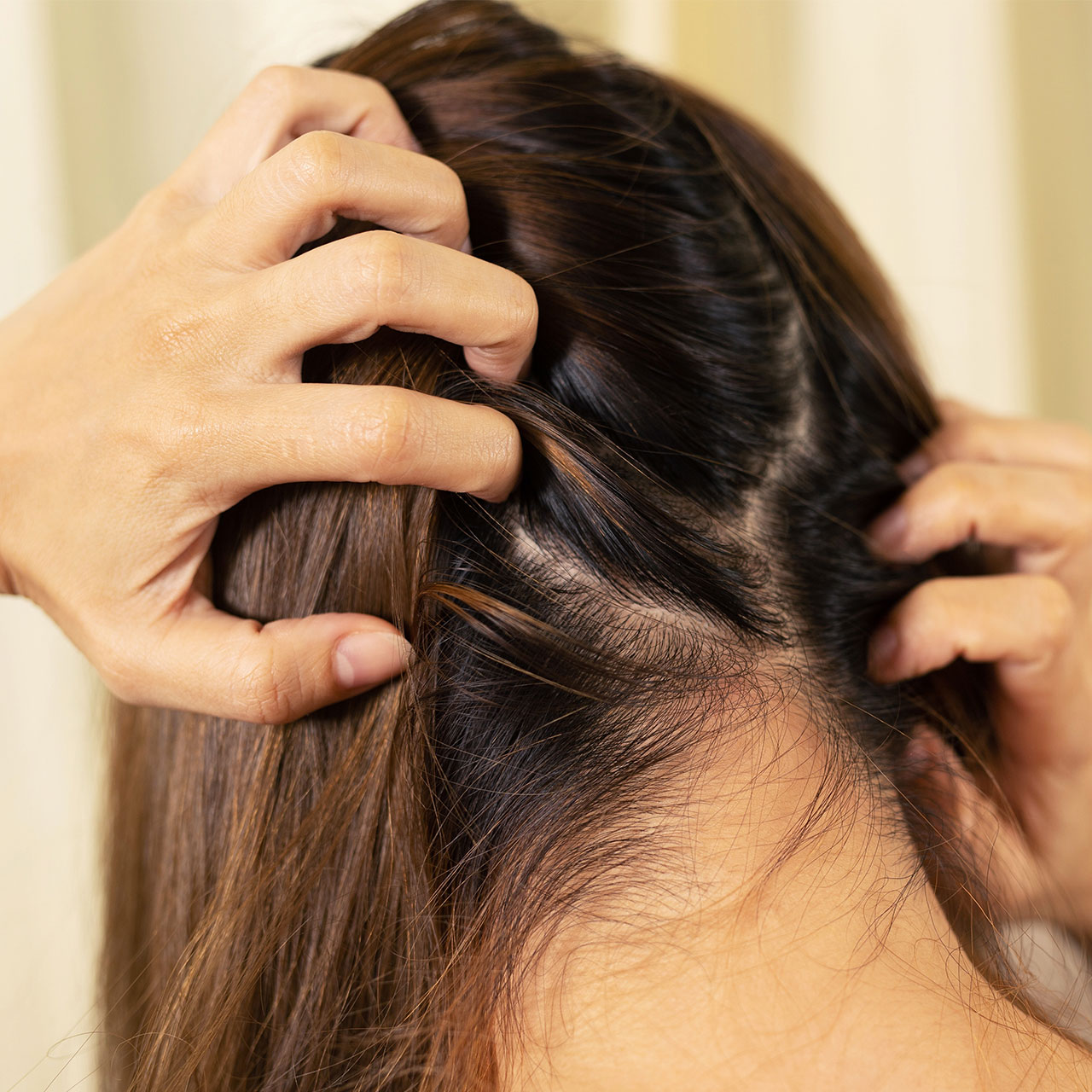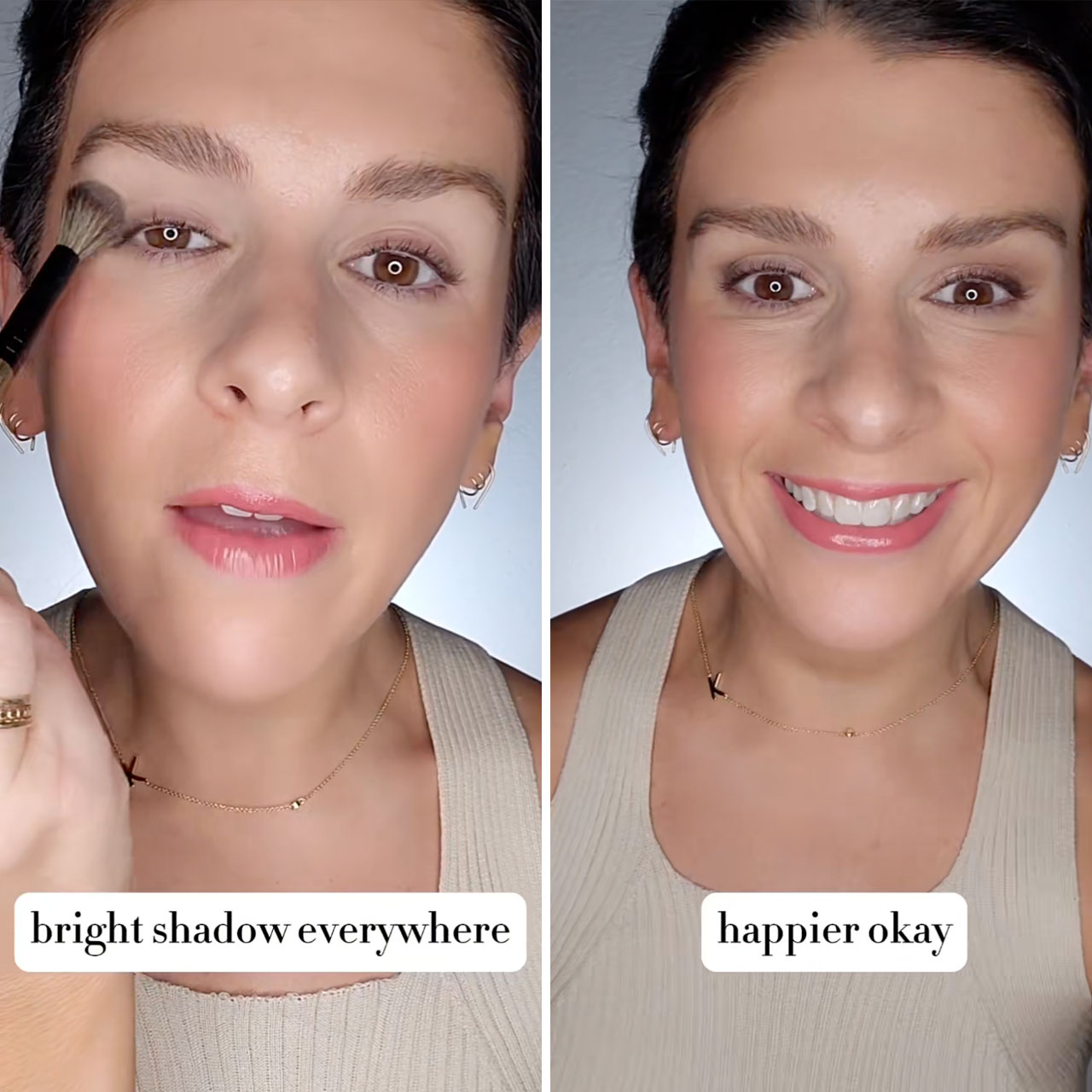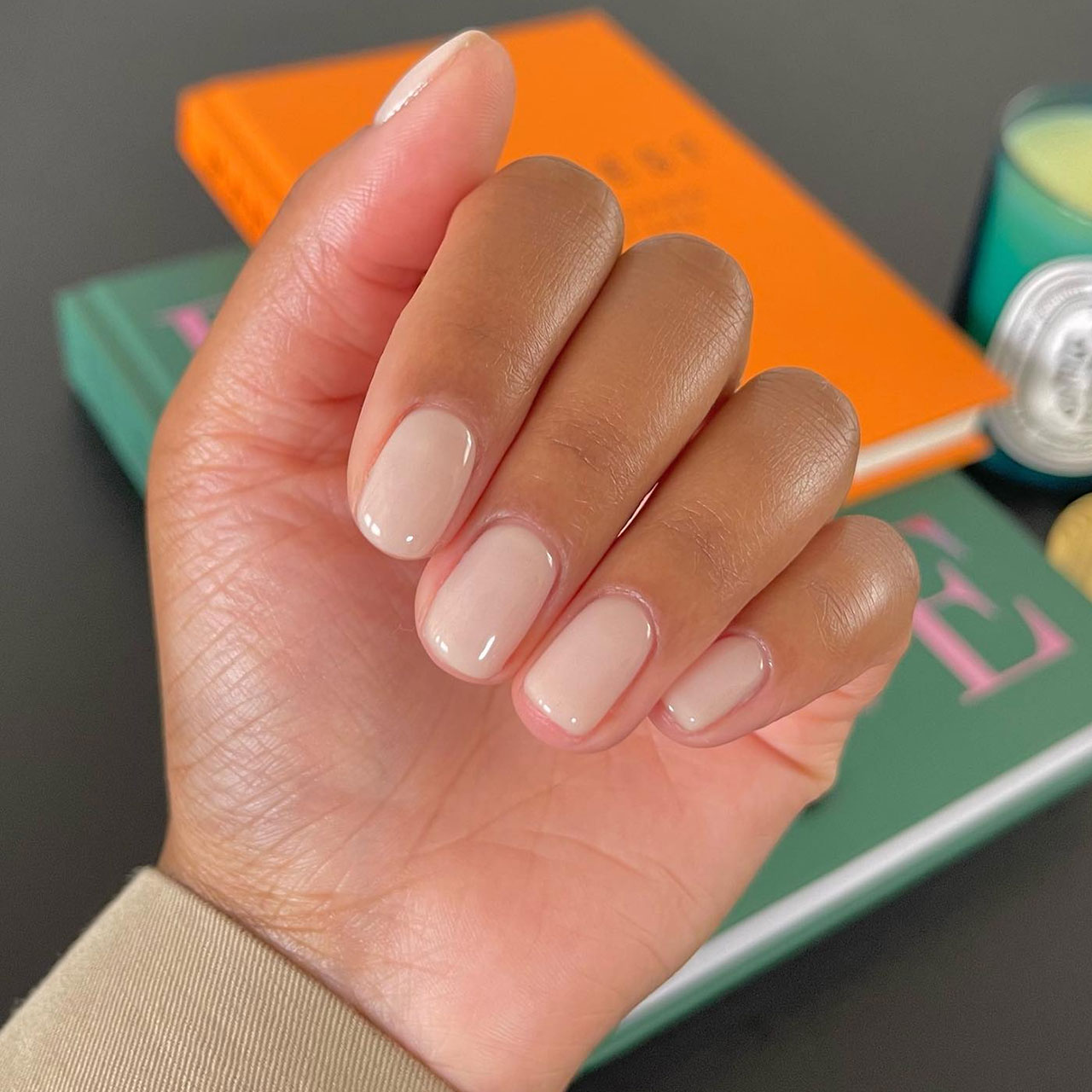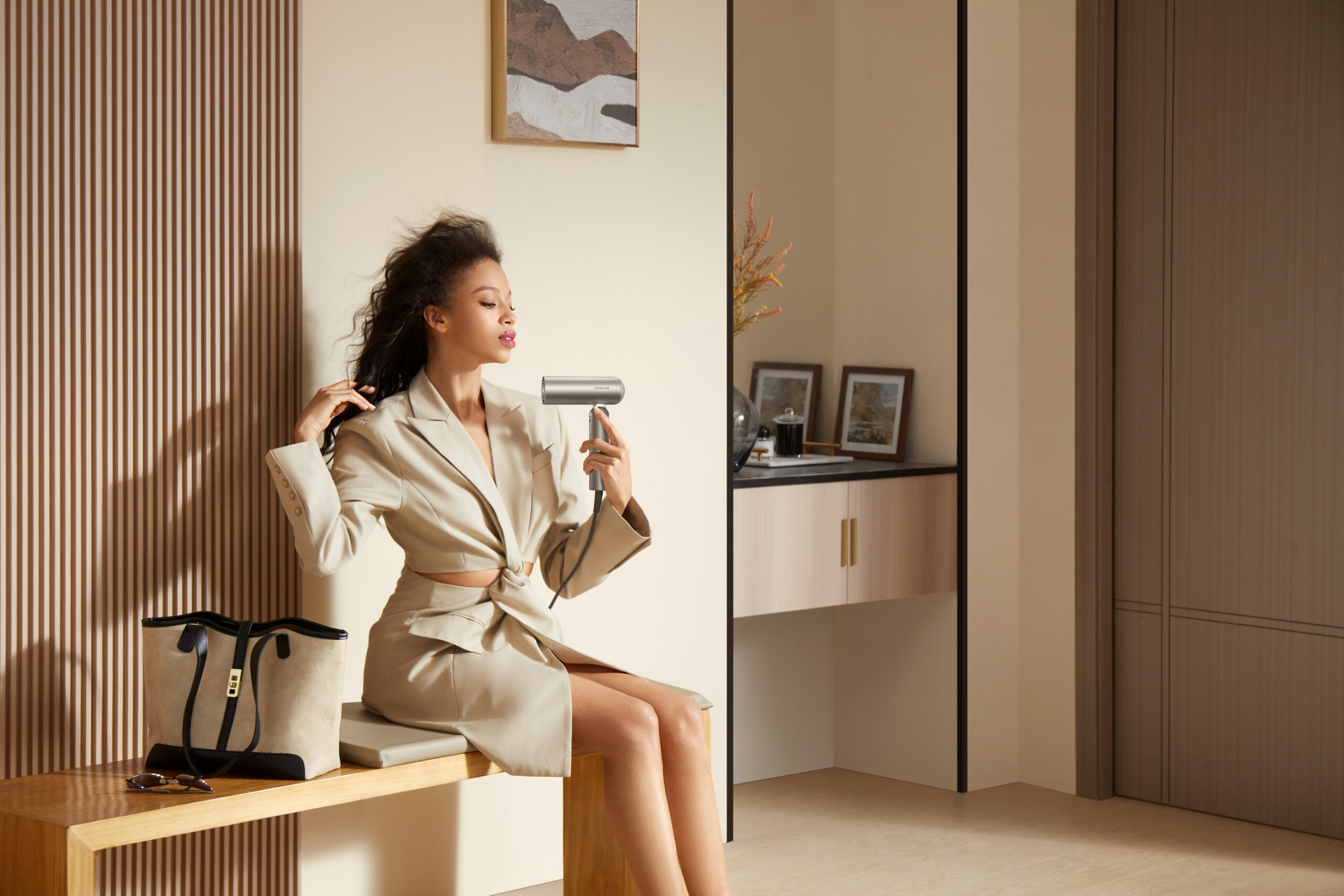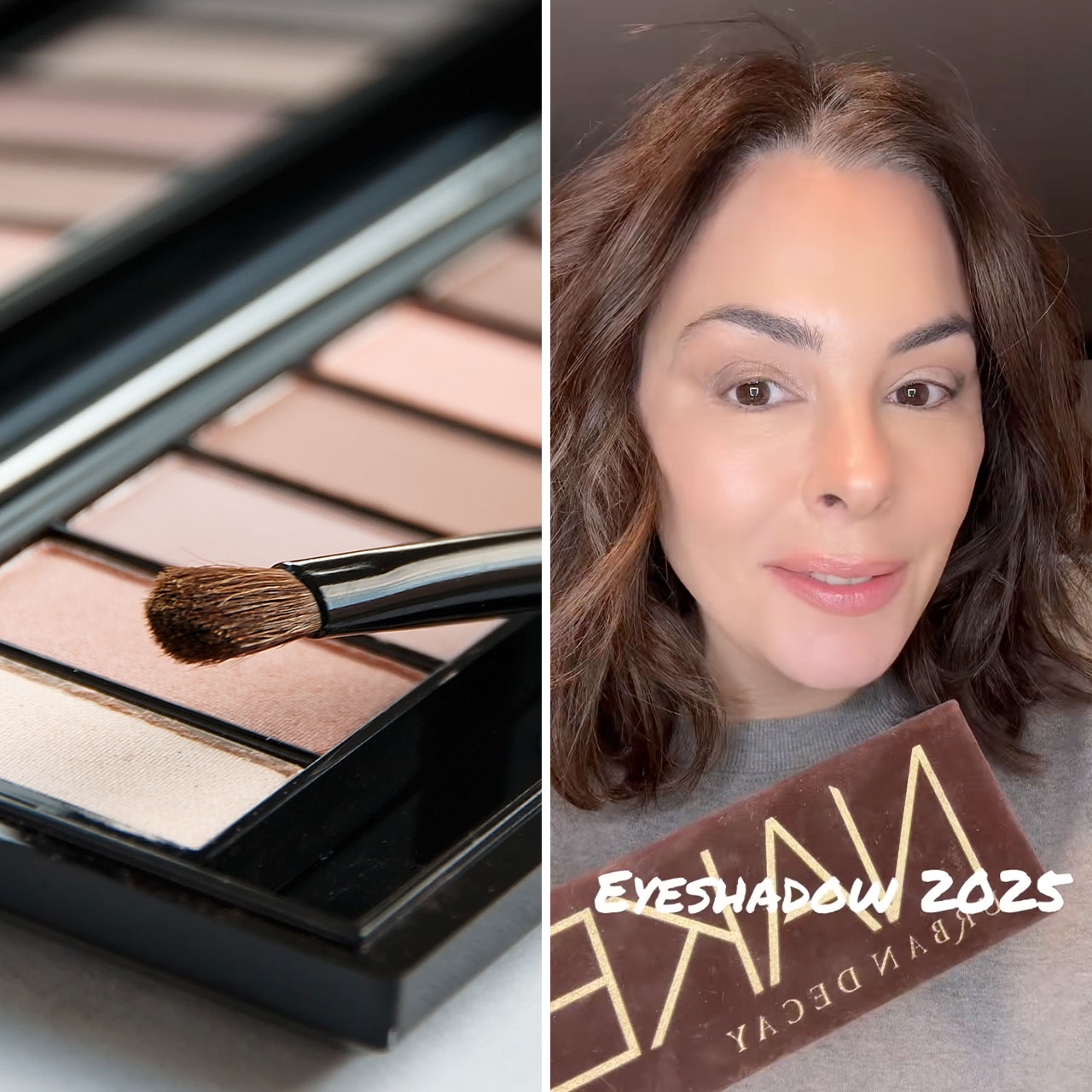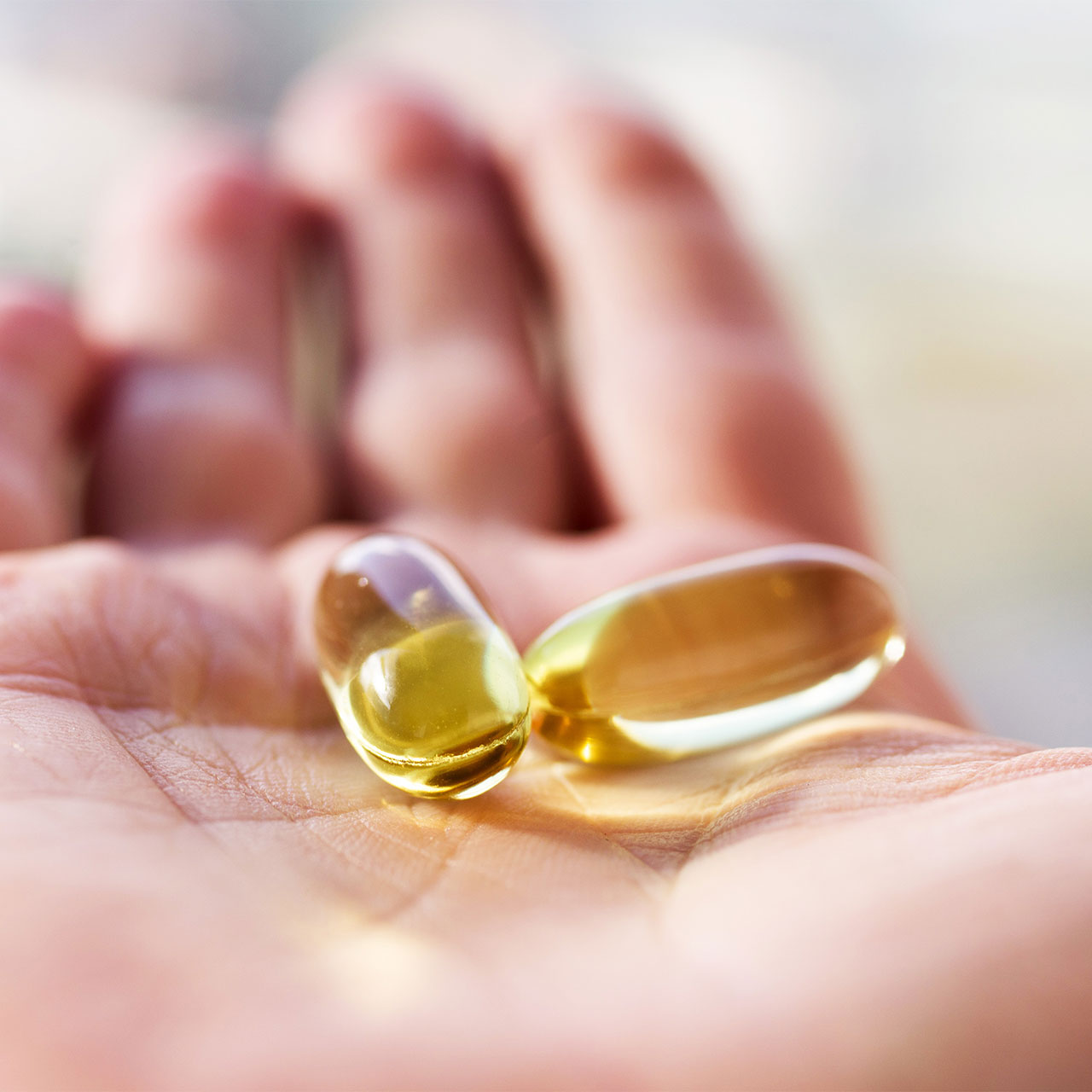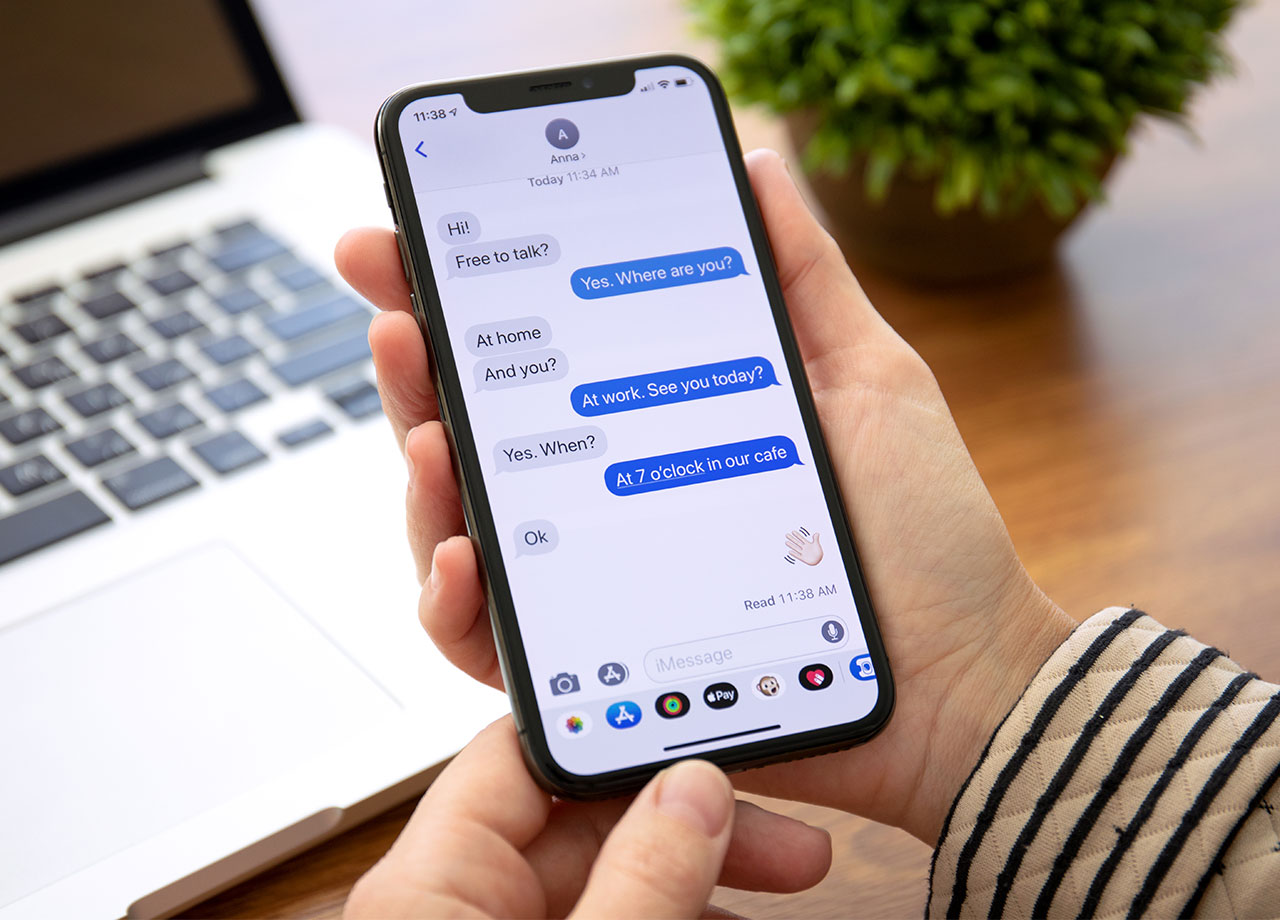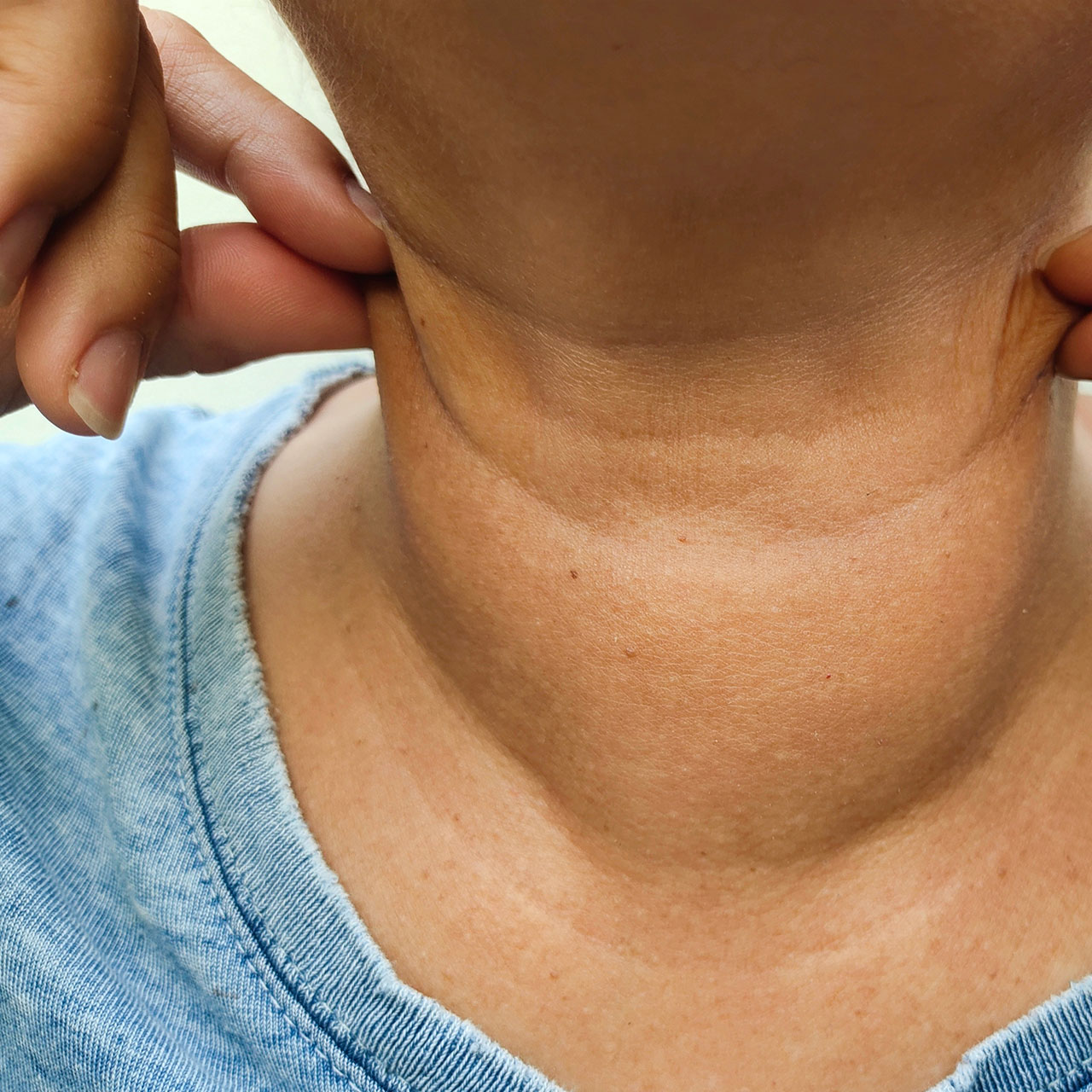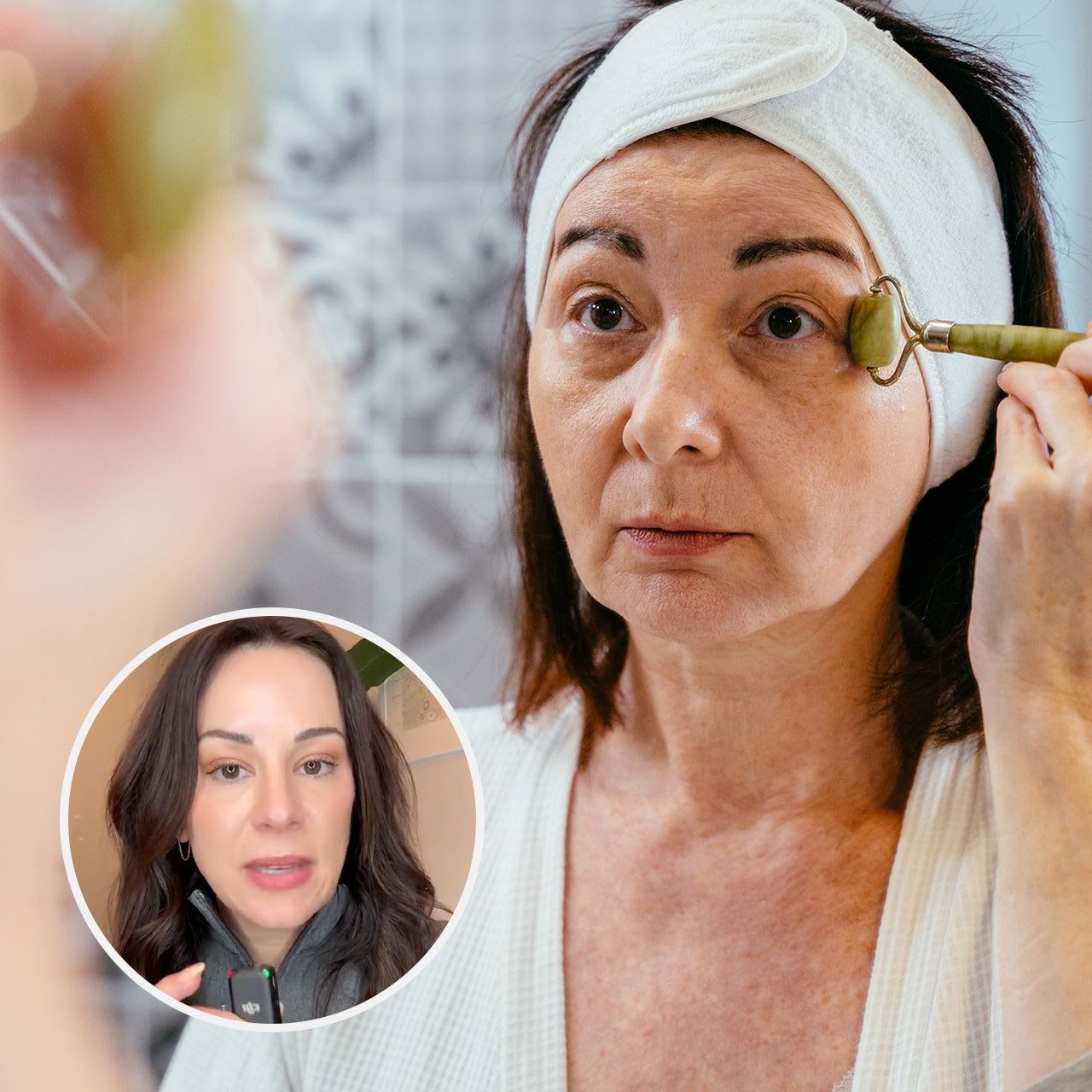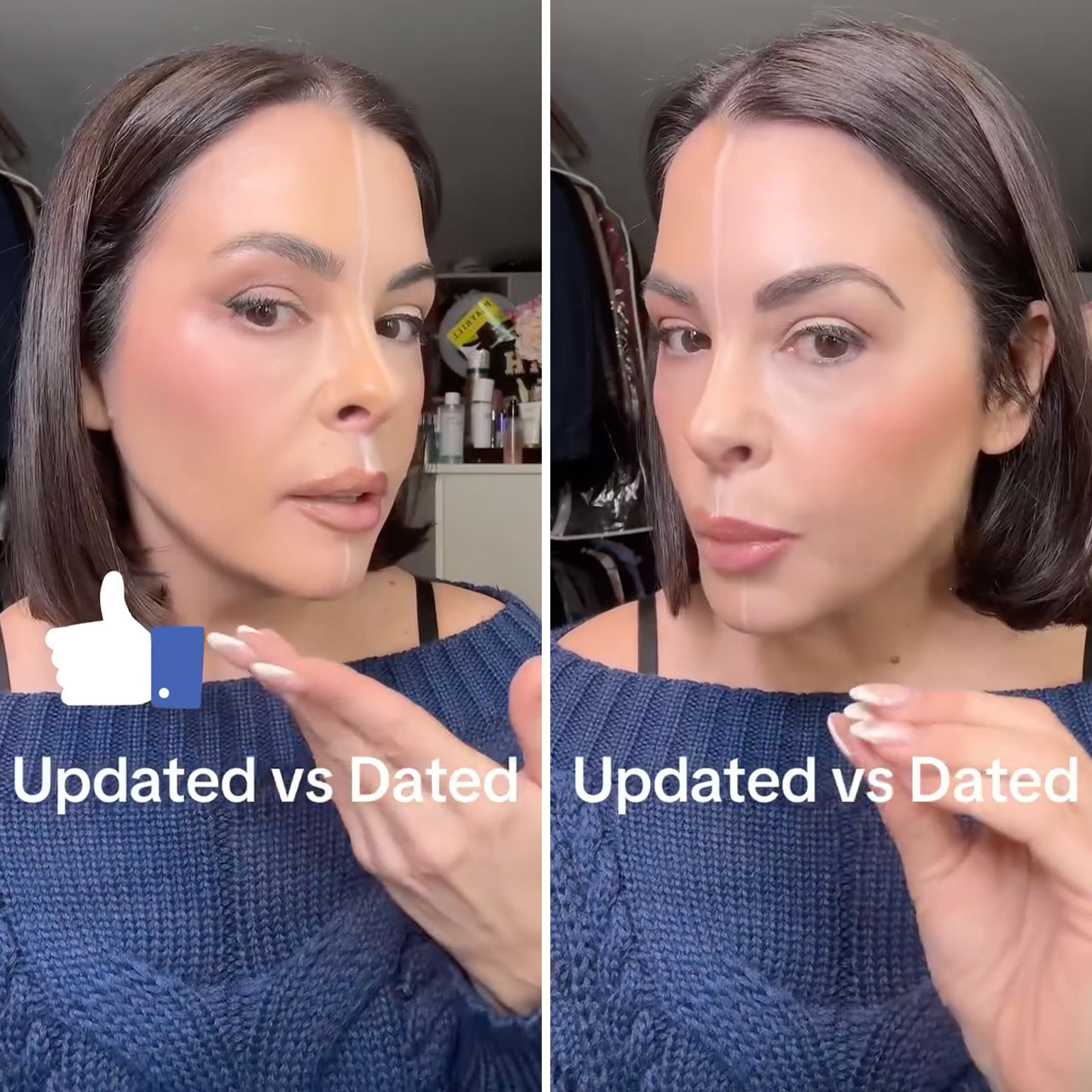This is an archived article and the information in the story may be outdated. Please check the time stamp on the story to see when it was updated last.
It’s no secret that we’re collectively living in an age where everyone is addicted to their phones. While this can have a negative impact on your mental health and take away time from other, more productive or stimulating activities, excessive usage of your phone can also have a dramatic impact on your complexion as well. You’ve likely heard of blue light and how it can make it more difficult to fall asleep at night, but studies have also begun to show that the amount we’re all using our phones could have a profound effect on the wellness of our skin in both the short and long term.
Although realistically there’s no way to cut your smartphone out of your life when society is so dependent on it, it may be worth limiting your usage in order to preserve your complexion as you age. We checked in with NYC Dermatologist Dr. Hadley King and Taylor Worden, Celebrity Esthetician and Founder of Taylor Worden Skin to get the rundown on the true effect your screens could be having on your skin–and exactly what to do about it.

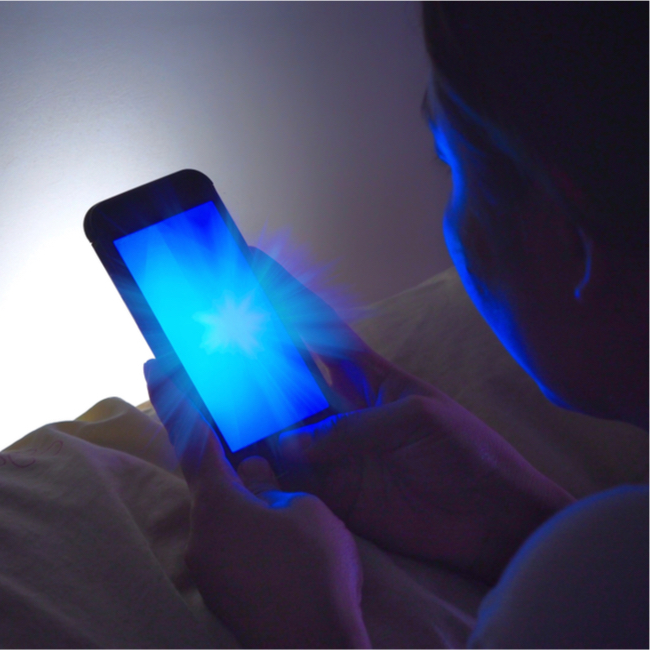
The reality is that blue light and other rays emitted through the screen of your smartphone could be speeding up your aging process, expediting something called photo-aging in which your skin begins to appear older prematurely. While blue light, otherwise known as HEV light or high-energy visible light, can actually have positive benefits on the body when it’s absorbed from sunlight, it’s when the primary source of blue light is your screens that your skin may begin to suffer.
“Routine exposure to blue light, preferably from daylight, helps regulate our body's sleep-wake cycle, improves our mood, keeps us alert and can enhance memory,” explains King. “HEV light penetrates into the lower layers of skin, the dermis. It is not associated with skin cancer like UV rays are, but it can cause skin to age prematurely (photo-aging). It can also contribute to hyperpigmentation and may play a part in melasma and age spots.”
Blue light is similar to UV rays in the sense that they also produce free radicals in the skin which can increase the breakdown of collagen and elastin, causing sagging and wrinkles prematurely. Collagen is the primary protein within your body which preserves elasticity and bounce in your skin, and in using screens and cell phones excessively you are actually slowly attacking your complexion over time.
Not only this, but taking calls with your phone pressed directly against your face can bring about a slew of other skin issues that may never have come about otherwise. “[The] iPhone touches your skin so you will see lots of people that will get pigmentation on the side of their face,” warns Worden. “Blue light creates oxidative stress which creates free radicals, inflammation, weakens your collagen and elastin, creates pigmentation, redness, swelling, and speeds up skin damage.”
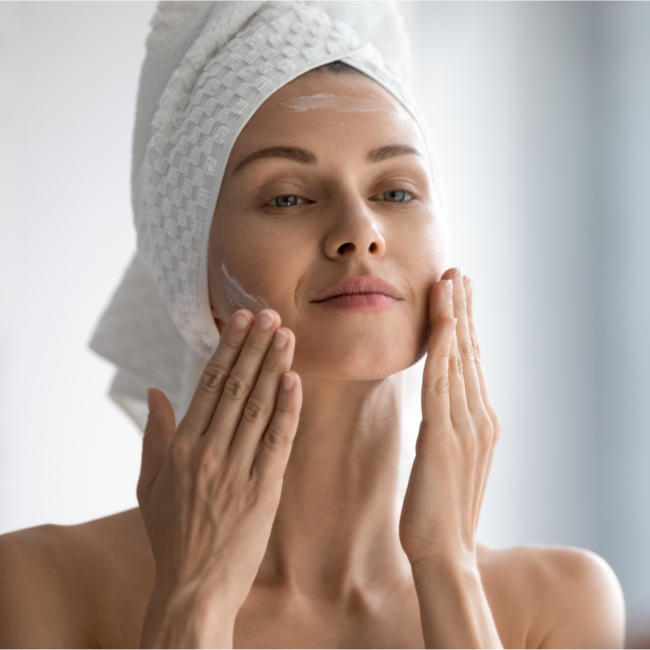
Seeing as technology is a mainstay in our lives for the foreseeable future, it’s important to protect your skin from the potential damage you could be subjecting it to each day. Thankfully science has begun to develop products which can preserve your skin against blue light, and there are a number of steps you can take to ensure your skin does not suffer from premature aging. Starting off your day by applying sunscreen each morning, even if the SPF is contained in your moisturizer is a great place to start for keeping HEV light damage at bay.
Additionally, integrating antioxidants such as vitamin C or vitamin E serum can help to reduce the damage of this light. King adds, “Antioxidants Licochalcone A and Glycyrrhetinic Acid have been shown to work together to protect skin cells in the deeper epidermal layers from sun-induced damage. Clinical research has shown that sunscreens containing Licochalcone A offer effective and extended protection from HEV light in addition to UV.” Limiting your screen use to only essential times and not immediately before bed can also have a significant impact on your skin, saving you from damage which may build up over time.
A well-rounded skincare routine is essential for preserving your complexion and fighting against the development of fine lines and wrinkles, and unfortunately our technology is making this an uphill battle. However, with the awareness that your phone may be aging you more quickly, it becomes easier to protect your skin from damage by using SPF, limiting the time you spend on your phone, and taking preventative and restorative measures to keeping your skin looking young and fresh, even despite being constantly inundated with blue light rays.



